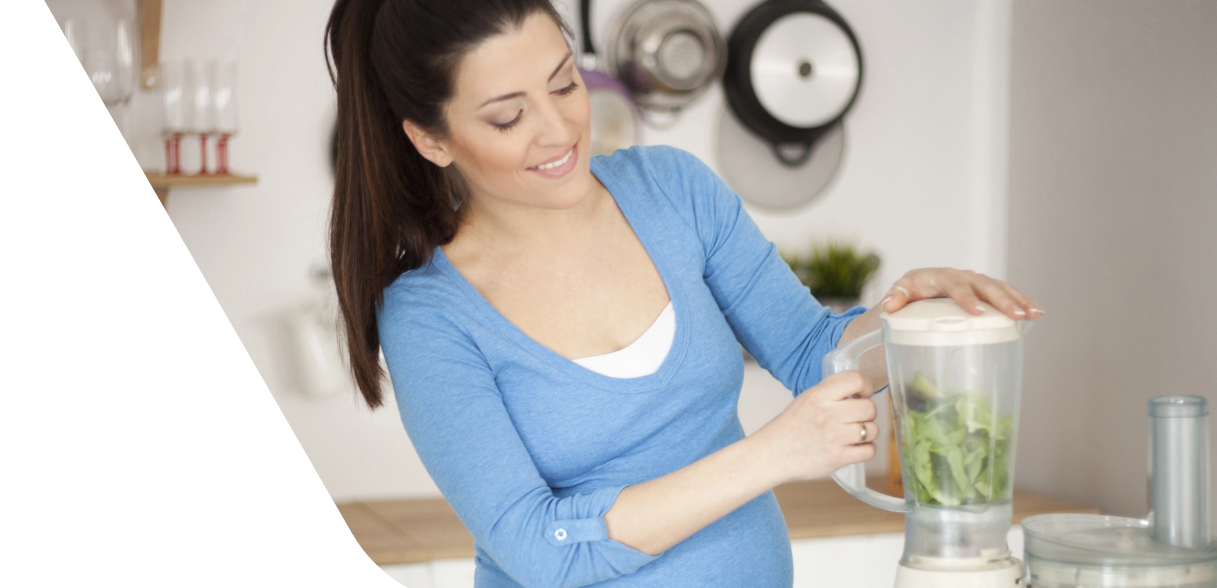The best way to enjoy a healthy pregnancy and to contribute to your baby's healthy development is to maintain a balanced daily diet that includes a variety of healthy foods each day as outlined by Canada's Food Guide. Pregnant and nursing women require more calories to support the growth of their baby. An extra small snack a day is usually enough to satisfy this increased caloric need. When you snack, avoid highly processed foods and opt for wholesome options like pre-washed veggies, low-fat yogurt or trail mix, instead.1
Canada’s Food Guide during Pregnancy
Below, you’ll find recommendations for a healthy pregnancy diet. Based on the Canada Food Guide during pregnancy, use these guidelines to establish a nourishing, well-rounded diet over the next few months. Keep in mind that nutritional needs change during pregnancy, and it’s possible you may need to make some changes in your diet. Read on to learn about what foods to eat, what foods to avoid and more.
Healthy Pregnancy Diet Tips
- Aim to make half your plate vegetables and fruits at each meal. Vegetables and fruits are high in vitamins like folic acid, minerals and fibre, which can help benefit your pregnancy.
- Choose whole grain products as often as possible. The fibre in whole grain products is helpful in preventing constipation, which is common in pregnancy.
- Eat foods that are high in protein for a healthy pregnancy diet. Include plant-based proteins, such as beans, lentils, nuts and seeds, as well as lean meats, poultry, fish, eggs, lower fat milk and other lower fat dairy products. Protein foods provide iron, which is important for you and your baby.
- Enjoy at least 5 ounces (150 grams) of cooked fish every week.2 Fatty fish like salmon, mackerel and herring contain DHA, an important building block of your baby’s brain, which can help support your baby’s normal braincognitive development.
- Avoid highly processed foods with added sodium and sugars such as cookies, potato chips and soda pop.
- Limit drinks with sodium, sugars and saturated fat. Try lower fat milk or unsweetened soy/almond beverages instead.
- There is no “safe” amount of alcohol during pregnancy. All forms of alcohol, including hard liquor, wine and beer, are dangerous to your baby's health.
- Caffeine should be limited to no more than 300mg daily (about two, 8-oz cups of coffee)3. Caffeine can also be found in teas, soft drinks and herbs such as guarana and yerba mate.
- Choose foods that contain healthy fats instead of those with saturated fats. Foods that contain healthy fat include nuts, seeds, avocado, fatty fish and vegetable oils.
*Health Canada provides advice for limiting exposure to mercury from certain types of fish.
Additional Tips for Enjoying Your Food:
- Eat slowly, and pay attention to when you’re full. Taking this step will help you feel more satisfied after a snack or meal.
- Cook more often. Planning your meals will help ensure you consume the essential nutrients you and your baby need.
- Involve others in the cooking process. You don’t have to do this journey alone! Invite friends or family to cook or dine with you, and enjoy spending time eating and conversing together during this exciting time in your life.






